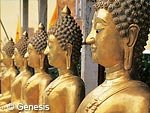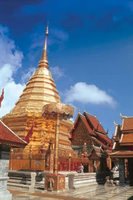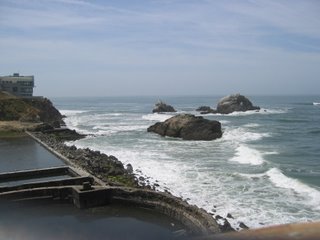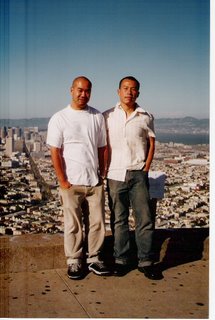Okay I've been trying to piece together this
Thailand trip: planning the itinerary, the order of places I want to visit, looking up accommodation and making pre-booking inquiries, and shopping for cheap airfares. Well...the secret to a deal on cheap flight is to always plan early because airlines *always* reserve a block of seats for its mileage program customers and mark down another sections of seats. So at the end of the day, when you board the plane, the chance is the person who sits next to you might have paid a couple hundred dollars more than you do simply because you book at a different time (or fortunate time) and subjected to a different fare basis code.
So what the hell is fare basis code? When booking a ticket, regardless of whether it is using a published or unpublished fare, there are letters that are assigned to different fares. These letters indicate the class of service, not simply indicating economy or business class, but rather the type of fare that was purchased. Without getting into the particular rules of each fare type, letters are assigned by the airlines to indicate the kind of ticket that has been purchased. Economy class on international routes, for example, often consists of a tier of fares that are designated by Y, M, B, H, K, and Q classes. The code varies among airlines but a Y class fare is usually the full-fare, fully refundable economy seat and has no restrictions on changes of date of travel. The Q class would be the most discounted fare which is available when you book early (unless you want to take risk not traveling on your date of travel and get a last-minute deal). This ticket usually does not qualify of any mileage and has heavy restrictions on any changes.
 My Q class economy ticket to Hong Kong from San Francisco in 2003 issued by Singapore Airlines
My Q class economy ticket to Hong Kong from San Francisco in 2003 issued by Singapore AirlinesHeavily discounted tickets (Q, H, K class) are usually available if you book early through travel agents. Tickets purchased through airline websites are usually refundable, changeable, full-fare Y class ticket. But do check from time to time if an airline offers a deal that is available at limited time. For example, last winter I found a deal to Hong Kong on
Cathay Pacific website for $750 and for just $59 extra I could fly to
Bangkok. Even though the fare basis code that governed my booking was a merely discounted M class, it was still cheaper to buy another separate Q class ticket to Bangkok from Hong Kong.
So the take home message will consist of these pointers:
1. Plan the trip and book early.
2. Be flexible on travel dates, international departure on Fridays, Saturdays, and Sundays could incur an additional $150 on the fare.
3. Check out low airfare sites like
CheapTickets,
Orbitz, and
Kayak (my favorite, it allows you to see fare comparison from 100 sites), although
Expedia is a more navigable sites, tickets from Expedia usually cost 10-20% more and it offers less choices of flights.
4. Check the major carrier that flies to your destination. For example, you'll probably get a good deal to Tokyo if you check out
Japan Airlines website. Tickets purchased directly from the airlines under promotion can be even cheaper than discounted travel agents.
5. Try to stick with one carrier. Multiple carriers on an itinerary means higher fare. For example, in my upcoming trip to Asia in December, if I just stay with Cathay Pacific to Hong Kong and Bangkok roundtrip, the fare will be, including taxes and surcharges $885. If I instead fly into Chiang Mai, a city which Cathay Pacific does not serve, I have to pay a little extra to fly via
Thai Airways for the Bangkok - Chiang Mai leg.
6. Pay attention to the fare rule, restrictions, and black-out dates. Usually the fare rule section will tell you what class you're booking and the concomitant restrictions.
As for me, it looks like I'll be flying from San Francisco to Bangkok via Cathay Pacific with a 1-hour layover in Hong Kong, then transfer to a domestic Thai Airways flight to Chiang Mai. I'll take the train from Chiang Mai to Bangkok, where I will catch another Cathay flight to Singapore, then Hong Kong, and come back to San Francisco.

















